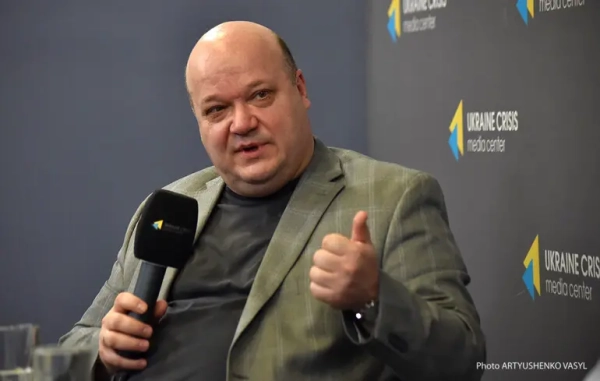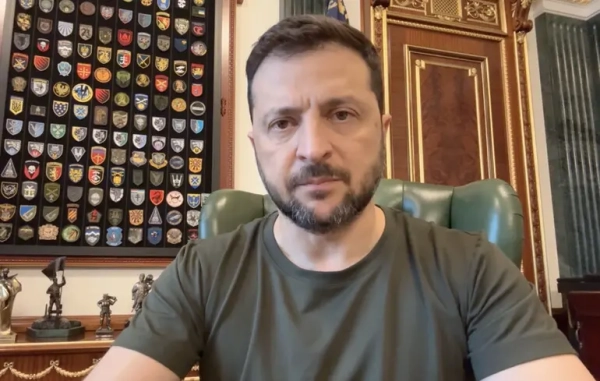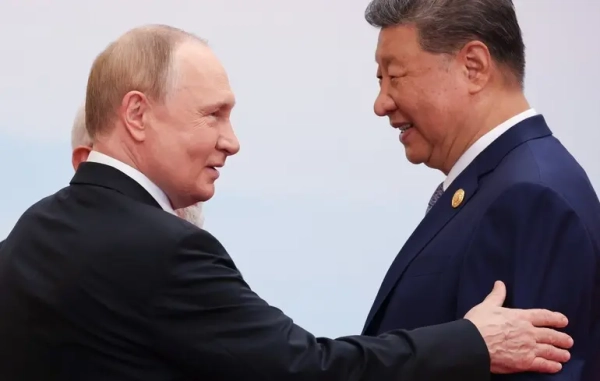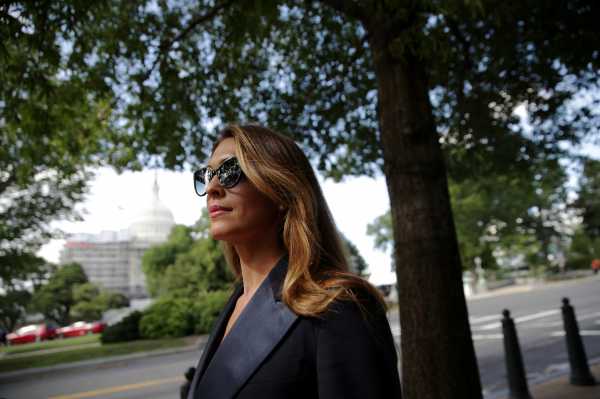
Former Trump campaign and White House aide Hope Hicks may be out of the woods when it comes to the Southern District of New York’s now-concluded investigation of the illegal hush payments former Trump fixer Michael Cohen made to women who say they had affairs with Donald Trump.
But House Judiciary Chair Jerry Nadler (D-NY) still has some tough questions for her.
In a remarkable letter sent to Hicks on Thursday, Nadler notes that the closed-door testimony Hicks offered to his committee last month “appears to be inconsistent with evidence unsealed this morning by a federal judge in New York.”
“As I reminded you at the outset of your interview, anything other than complete candor can have very serious consequences,” Nadler wrote, with a footnote underneath noting that making materially false statements to Congress is a crime. “Accordingly, I would expect you to clarify this matter before the Committee in very short order — but no later than August 15, 2019.”
At issue are a number of claims Hicks made during her testimony about how she purportedly had no direct knowledge of hush payments made to two women who said they had affairs with Trump — Karen McDougal, whose story was purchased for $150,000 by American Media Inc. (AMI), the parent company of the National Enquirer, in August 2016 (and then buried); and Stormy Daniels, who Cohen paid $130,000 in October 2016 in exchange for her silence about the alleged affair with Trump.
At the time of the Daniels payment, the Trump campaign was reeling from the Access Hollywood tape in which Trump can be heard bragging about groping women, as well as allegations from a number of women who subsequently came forward to accuse Trump of sexual misconduct.
So Cohen got busy trying to hush up Daniels before she went public with her story. The president’s longtime personal lawyer and fixer initially hoped AMI would strike a deal with Daniels. But toward the end of October, Cohen, feeling pressure to strike a deal with Daniels before she reached one with a media outlet other than AMI, ended up using shell companies to pay her directly (he was later reimbursed in installments by the Trump Organization).
Cohen ultimately pleaded guilty to felony campaign finance violations related to the payments — and implicated the president in his crimes during a hearing in federal court, saying he made the payments “at the direction of” Trump. He is currently serving a three-year prison sentence.
What Hicks said compared to what we know now to be the case
As Nadler highlights in his letter, Hicks told his committee that she had no knowledge of the hush payment agreements ahead of media reports about them.
“I wasn’t aware of anything — I wasn’t aware of a hush payment agreement,” she said.
Hicks also told the committee, “I don’t recall speaking to [Mr. Cohen] about Stormy other than to rely what the reporter said to me, that she would be mentioned in [a] story, but there was no additional context … I know the president had conversations with Michael separate from me, so it’s possible it was part of those. I don’t recall being part of those conversations.” Asked if she had contact with Keith Davidson, who was then serving as Daniels’s lawyer, or executives from AMI, Hicks replied, “not that I’m aware of.”
Those statements now appear to have been misleading, and in his letter, Nadler presents the receipts. According to the unsealed documents, on October 8, 2016 — the day after the Washington Post published the Access Hollywood tape — Cohen received a call from Hicks that Trump joined. Cohen and Hicks subsequently had another brief call that same day, and then after that, Cohen got in touch with Trump and officials from AMI. The newly unsealed evidence suggests, but doesn’t prove, that the bizarre line of communications was about arranging the hush payments for Daniels.
“The evidence shows how Mr. Cohen, in these communications, then went on to facilitate the payments to Ms. Daniels,” Nadler’s letter to Hicks says. “In addition, on October 28, 2016, the day that Mr. Cohen ‘finalized the transaction with Davidson,’ he spoke to the President for five minutes, then ‘attempted a series of phone calls to Davidson [and AMI officials] throughout the day,’ and, upon confirming the payment with [AMI] and Mr. Davidson, he then spoke directly to you.” (It’s unclear why Cohen was talking with AMI officials at this point, since they had no direct role in the payment to Daniels, but he could’ve been just looping them in about the deal he orchestrated.)
Nadler’s letter goes on to detail how Hicks’s testimony that she “wasn’t aware of a hush payment agreement” and didn’t communicate with Davidson or AMI officials is belied by phone records:
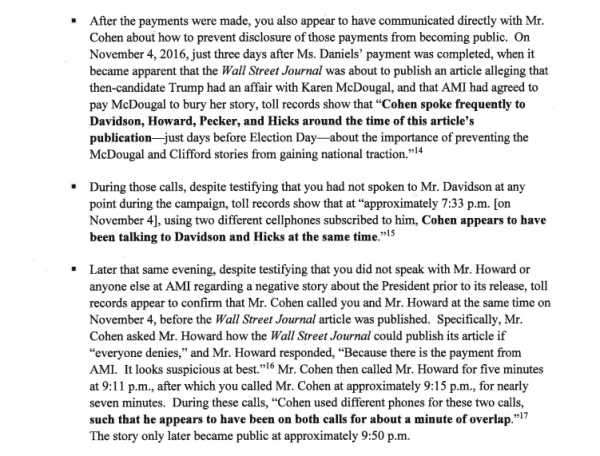
To be clear, none of the evidence that was unsealed on Thursday proves that Hicks lied to Congress, because none of it establishes conclusively what any of the calls were about. In a statement released on Friday, Hicks’s attorney, Robert Trout, indicated that Hicks stands by her testimony.
But the newly unsealed evidence does prove that Hicks was in close contact with Cohen during the crucial period of time in between the damaging Access Hollywood revelations and Cohen consummating an illegal hush deal with Daniels that was meant to benefit Trump’s campaign. It also indicates that the string of communications between Cohen and Hicks was unusual; according to an FBI agent whose account is included in the unsealed documents, prior to October 8, 2016, Cohen and Hicks hadn’t spoken on the phone in weeks.
None of this may really end up mattering
The unsealed documents also serve as more evidence that Trump lied in the spring of 2018 when he told reporters he didn’t know about the hush payment to Daniels. Lying to the press, however, isn’t a crime — lying to Congress is.
After the documents were unsealed, national security lawyer Bradley P. Moss tweeted that he’d be “surprised if there isn’t a 1001 violation referral for Hope Hicks” by the end of the day on Friday. Moss was referring to a federal statute that criminalizes making “any materially false, fictitious, or fraudulent statement or representation” to Congress.
In other words, Nadler could refer Hicks to the Department of Justice for possible prosecution. But the DOJ’s current head honcho is Attorney General William Barr, and if Barr has demonstrated anything in recent months, it’s that he’s willing to go to extraordinary lengths to protect Trump.
Moss acknowledged this reality in a subsequent email to Vox.
“The decision to pursue a federal criminal charge is almost exclusively the prerogative of the Justice Department and, ultimately, Attorney General Barr,” Moss wrote. “If DOJ were to decline to pursue a criminal referral in this case, Congress would largely be left without any recourse. It does have criminal contempt authority of its own but it’s virtually never used and simply would not be an option here as a practical matter.”
So while Hicks’s testimony to Congress may look dubious, in all likelihood she’ll face no consequences. From Trump’s standpoint, this is one of the reasons installing a loyalist as attorney general was such a major victory.
The news moves fast. To stay updated, follow Aaron Rupar on Twitter, and read more of Vox’s policy and politics coverage.
Sourse: vox.com
